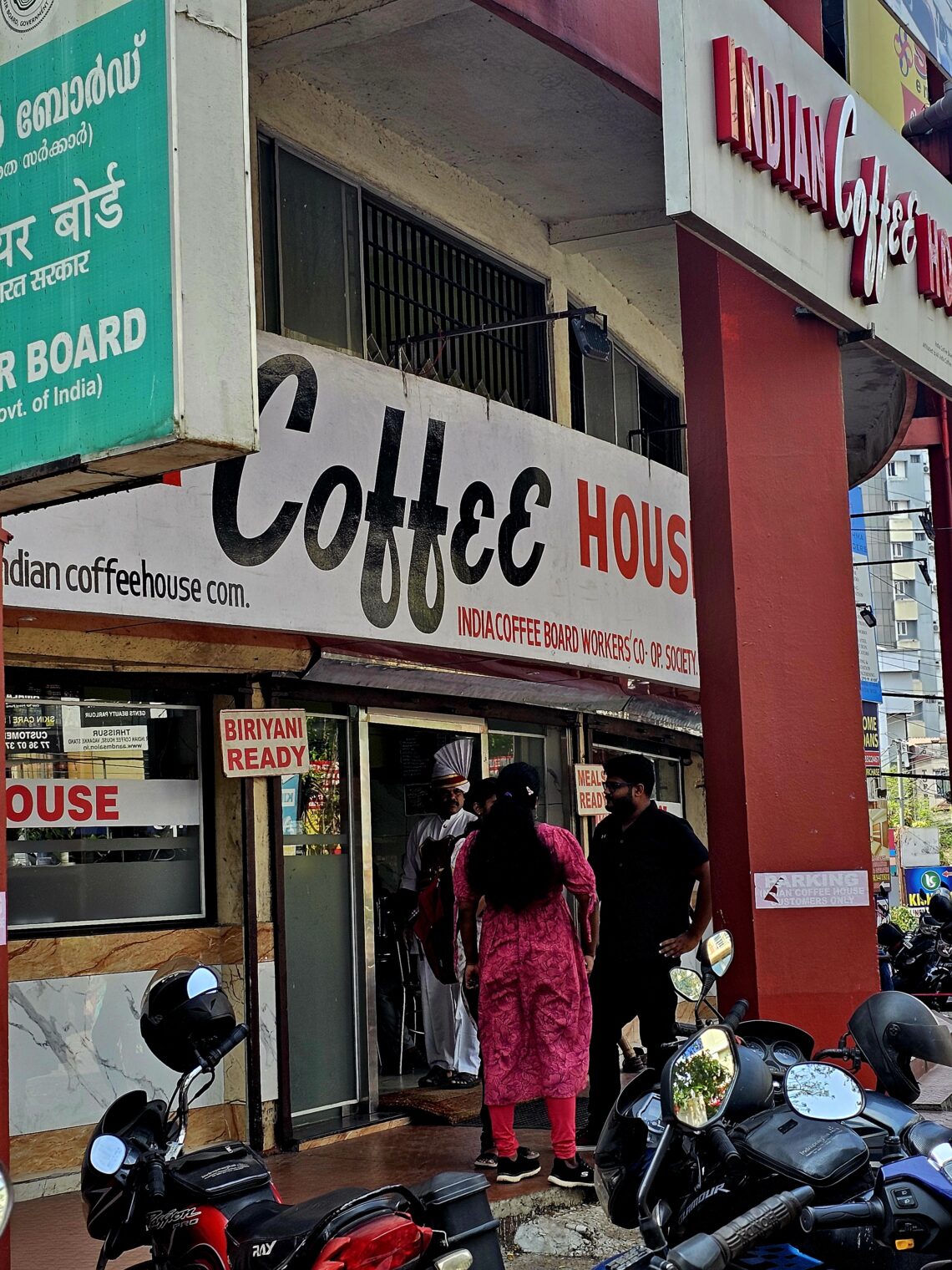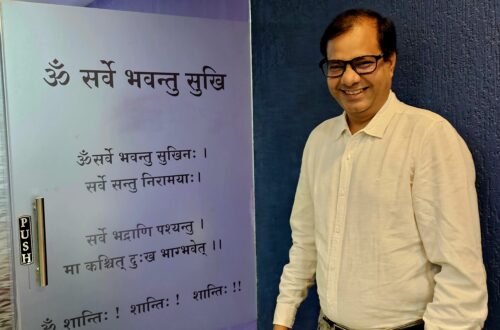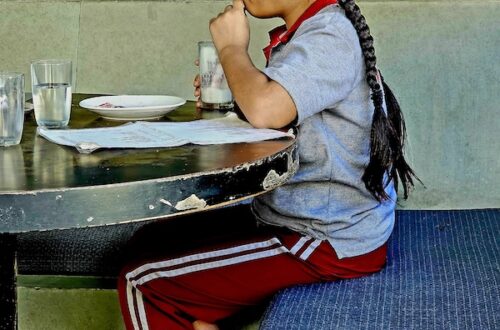
A. K. Gopalan (Kathy – Thrissur – Feb. 24)
English version below
Depuis trois mois, je parcours des milliers de kilomètres à travers le pays pour rendre hommage aux travailleurs et clients des Indian Coffee Houses (ICH).
Ma motivation est politique, sociale, artistique et fantaisiste. Mon moteur c’est la soif d’aventure, de rencontres, de liens, de découvertes, d’émerveillement.
Il me semble opportun, à titre de rappel, de retracer des pans de l’histoire de cette coopérative.
Il y a plus de 500 Indian Coffee Houses en Inde mais pas dans tous les états. Dans le Madhya Pradesh ou le Kerala, par exemple, il y en a des multitudes.
Ces ICH sont gérés par une série de coopératives de travailleurs. La chaîne a été au cœur des mouvements communistes et socialistes depuis des générations, jouant ainsi un rôle très important dans la politique indienne.
Au Kerala, il existe deux sociétés coopératives des ICH. Une à Thrissur, l’autre à Kannur.
Je me trouve à Thrissur, là où la India Coffee Board Workers Co-operative Society Limited No.4227 a été constituée le 10 février 1958.
Le premier Indian Coffee House y a ouvert ses portes le 8 mars 1958 ce qui en faisait également le quatrième du pays.
La société compte plus de cinquante succursales à Thrissur, Ernakulam, Idukki, Kottayam, Pathanamthitta, Alappuzha, Kollam et Thiruvananthapuram. Je n’en ai visité qu’une bonne quinzaine.
A la base de ce mouvement, car tu l’auras compris, il s’agit de bien plus que d’une chaîne de restaurants populaires, il y a le fondateur Ayillyath Kuttiari Gopalan (01/10/1904 – 22/03/1977), connu sous le nom de A. K. Gopalan.
AKG était un homme politique. Il faisait partie des 16 membres du Parti Communiste de l’Inde élus au premier Lok Sabha* en 1952.
Il s’agit* de la Chambre basse du peuple qui en choisit les membres au moyen d’élections. Le Lok Sabha joue un rôle crucial dans le système parlementaire indien. Il participe à la formulation et à l’adoption des lois, en approuve le budget, contrôle l’exécutif, examine et débat des questions d’intérêt public. C’est l’opposition.
Le Lok Sabha et le Rajya Sabha, la Chambre Haute du Parlement indien, forment le Parlement bicaméral de l’Inde.
La deuxième coopérative de gestion, un peu plus au nord du Kerala est la India Coffee Workers’ Co operative Society Ltd.No.4317, Kannur. Elle gère une trentaine de filiales, entre autres à Kasaragod et Palakkad .
Parlons un peu chiffres de cette dernière société.
Seules des personnes peuvent être membres de la société. Le capital social autorisé est de 10 000 000 roupies. La valeur d’une part est de 100 roupies, un peu plus d’un euro. Le capital social versé au 31-03-2023 s’élevait à 5 274 900 roupies. Le nombre total de membres au 31.03.2023 était de 671, dont 10 membres sont des sympathisants et les autres des employés.
Le capital social d’une coopérative de travailleurs est constitué des contributions financières des membres, sous la forme de parts sociales, qui sont essentielles pour soutenir les activités de la coopérative et assurer sa viabilité économique.
Je vous l’avais déjà écrit, l’investissement des travailleurs des ICH est énorme.
S’investir en tant que personne peut prendre de nombreuses formes, allant de l’engagement personnel, financier, politique ou moral, à l’action sociale ou à l’éducation permanente. Ces formes d’investissement contribuent à la croissance personnelle et au bien-être collectif.
Une fois de plus, je tiens à saluer ces travailleurs engagés et inspirants qui font la fierté de la nation!
Over the past three months, my journey has covered thousands of kilometers, weaving through the diverse landscapes of the country as a tribute to the industrious workers and loyal patrons of Indian Coffee Houses (ICH).
My motivations are a vibrant mix of the political, social, artistic, and fanciful, driven by a profound thirst for adventure, a yearning for meaningful connections, a desire to forge lasting bonds, an appetite for discovery, and an insatiable curiosity that seeks wonder in every corner.
Let’s take a moment to unravel the historical tapestry of this cooperative. Beyond being a popular restaurant chain, Indian Coffee Houses occupy a significant space in the intricate political fabric of India.
With over 500 of these outlets dotting the Indian map, their presence is diverse, not uniform. States like Madhya Pradesh or Kerala boast a myriad of these lively coffee hubs.
What sets ICH apart is its unique management structure, overseen by a series of workers’ cooperatives, placing it at the epicenter of communist and socialist movements that have left an indelible mark on Indian politics for generations.
In Kerala, there are two cooperative societies for ICHs, one in Thrissur and the other in Kannur.
Currently stationed in Thrissur, the India Coffee Board Workers Co-operative Society Limited No.4227 was founded on February 10, 1958.
On March 8, 1958, the inaugural Indian Coffee House opened its doors here, marking its place as the fourth in the country. With over fifty branches spanning cities like Thrissur, Ernakulam, Idukki, Kottayam, Pathanamthitta, Alappuzha, Kollam, and Thiruvananthapuram, I’ve had the pleasure of exploring about fifteen of them.
At the heart of this movement lies more than just a restaurant chain—it’s a homage to the visionary founder, Ayillyath Kuttiari Gopalan (01/10/1904 – 22/03/1977), fondly known as A. K. Gopalan.
AKG was a politician. He was one of the 16 members of the Communist Party of India elected to the first Lok Sabha in 1952. It is the lower house of the people of the Indian Parliament who elect its members through elections. The Lok Sabha plays a crucial role in the Indian parliamentary system. It participates in the formulation and adoption of laws, approves the budget, controls the executive, and examines and debates issues of public interest. The Lok Sabha, in conjunction with the Rajya Sabha, the upper house, forms the bicameral Parliament of India.
The second management cooperative, a little further north in Kerala, is the India Coffee Workers’ Co-operative Society Ltd.No.4317, Kannur. It manages around thirty branches, including in Kasaragod and Palakkad.
Let’s talk about some figures, for example, regarding this latter society.
Only individuals can be members of the society. The authorized share capital is 10,000,000 rupees. The value of one share is 100 rupees, just a bit more than one euro. The paid-up share capital as of 31-03-2023 was 5,274,900 rupees. The total number of members as of 31.03.2023 was 671, with 10 members being sympathizers and the others being employees.
The share capital of a workers’ cooperative is made up of financial contributions from members in the form of shares, which are essential to support the cooperative’s activities and ensure its economic viability.
As I mentioned before, the investment of ICH workers is significant. Investing as an individual can take many forms, from personal, financial, political, or moral commitment to social action or continuous education. These forms of investment contribute to personal growth and collective well-being.
Once again, I want to salute these committed and inspiring workers who bring pride to the nation!






4 Comments
Nathalie Heintz
Merci Kathy pour cet article bien approfondi. Chacun d’entre eux permet de ressentir à défaut de cerner cette société complexe mais qui tient la route grâce à son inventivité et à ses règles propres. Tu réalises un beau coup de chapeau à ces travailleurs et à ce peuple.
Kathy Van der Elst
Merci, Nathalie. J’adore de plus en plus cette coopérative.
Ergun
Merci Kathy d’avoir partagé tes voyages, tes expériences et tes informations intéressantes que tu decouvres.
De plus, je travail aussi dans une coopérative donc c’est interresant d’en connaître un peu la version indienne :).
Kathy Van der Elst
Avec plaisir, Ergün. Merci de suivre ces aventures. Nous aurons plein de choses à nous raconter à propos des coopératives! Bonne journée,